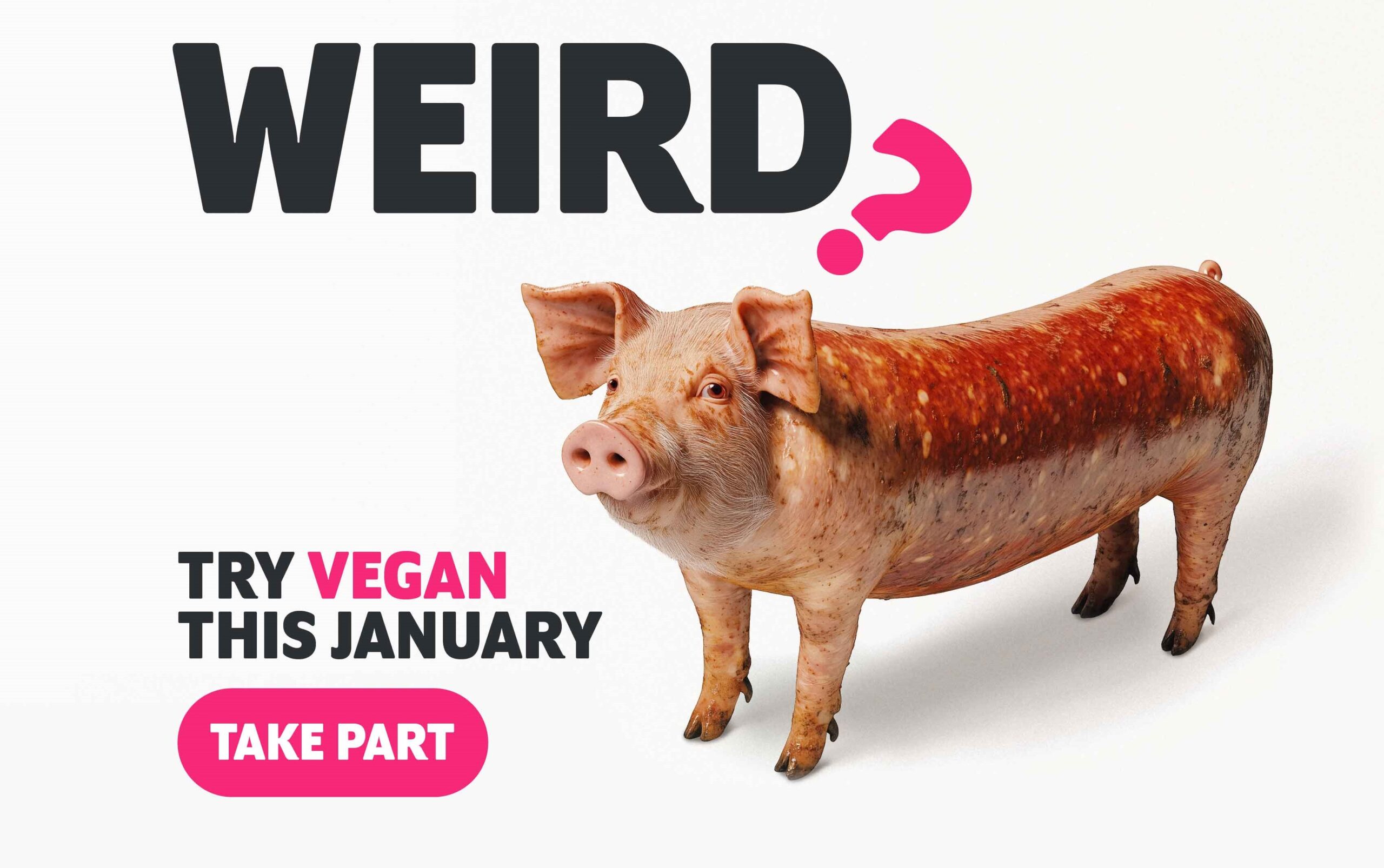
In a world where eating habits are often handed down through generations, we rarely question the foods we consume daily. But what if we told you that much of what we consider "normal" might actually be pretty weird?
Let’s take a moment to explore why certain foods may not be as ordinary as they seem.
Sausage casings are made from pig intestines and the filling is ground pig muscle and fat. Most of us don’t really think about the different animal parts hidden in things like sausages, burgers and nuggets. Might feel a bit weird when we realise we’re eating animals with the same body parts as us?
We’re the only animal that’s never weaned and continues to drink milk as an adult – and the only one that drinks the milk of another species. If that’s not weird enough, we deny calves the milk that nature intended for them, removing them from their mothers within hours of birth so that the cow’s milk can be bottled and sold to us.
Selective breeding of chickens by the farming industry has produced breeds of birds that grow much bigger and much faster than they naturally would. This results in enormous suffering for billions of chickens every year. Many are unable to stand after just a couple of weeks of life and they often struggle to breath as their lungs are compressed under the weight of their gigantic bodies. They are crated for slaughter at only 5-6 weeks old – still just chicks with blue eyes and soft chirps.
Chickens are killed at just 6 weeks old and pigs at 6 months – a fraction of their potential lifespan. Weird, or just sad?
Selective breeding of chickens by the farming industry has produced breeds of birds that grow much bigger and much faster than they naturally would – reaching slaughter weight at only 5-6 weeks old – still just chicks with blue eyes and soft chirps.
It’s a similar story for pigs, though slightly less extreme. They’re removed from their mothers at only 4-6 weeks old – much earlier than is natural – and fattened for six months in crowded indoor pens before slaughter.
Most farmed animals do not mate naturally but are artificially inseminated to reproduce the ‘best’ genetics. Some can’t even give birth naturally and must undergo caesareans. Weird we still think eating meat is ‘natural’.
Because of the size of typical commercial male turkeys, it’s difficult for the male to get close enough to a female without injuring her because she’s much smaller and lighter. As a result, most breeding is carried out using artificial insemination.
Some breeds of cows farmed for beef have been bred to be more muscular to increase the amount of meat they produce. A combination of calves growing very large during pregnancy and the mothers having narrow pelvic canals can result in problems giving birth. Repeated caesareans may be needed to allow them to calve.
Most cows farmed for dairy are artificially inseminated within three months of giving birth to ensure they produce one calf a year to keep milk production high.
Artificial insemination is also now the predominant way of impregnating pigs on commercial farms around the world.
When you start questioning these food norms, it becomes clear that what we’ve been conditioned to accept as normal is, in fact, pretty weird. By choosing to eat vegan, you’re not only opting out of these strange practices, but you’re also making a powerful statement for compassion, sustainability and health.
Veganuary inspires and supports people all over the world to try vegan for January and beyond. Millions of people have already taken part.
Will you join them?
Join in to receive a celebrity e-cookbook along with 31 days of inspiring recipes, nutrition tips and more. All our resources are 100% free!
